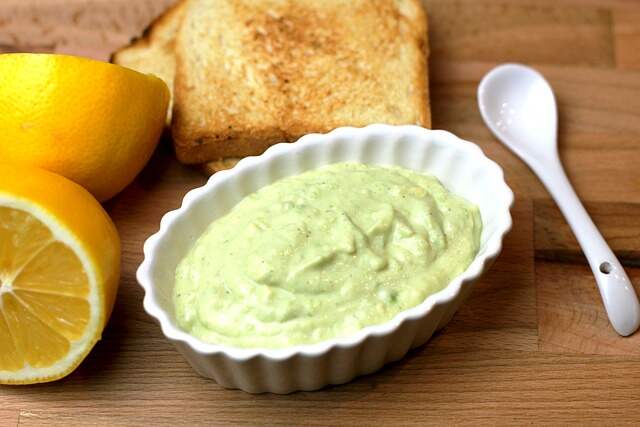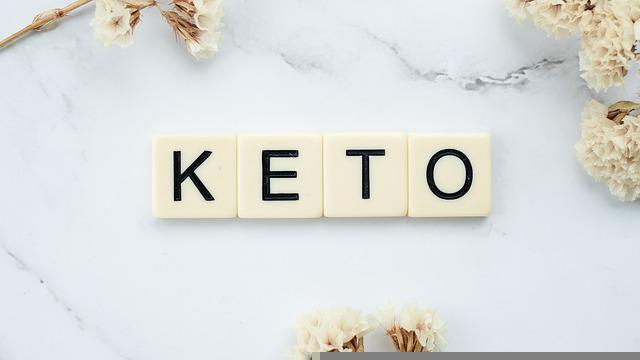A low-carb, high-fat diet called the ketogenic diet, sometimes known as the “keto” diet, has been used for centuries to cure a variety of illnesses. The ketogenic diet was a popular method for managing diabetes in the 19th century.
When medication failed to control a child’s epilepsy, it was first introduced as a viable therapeutic option in 1920. Cancer, diabetes, polycystic ovarian syndrome, and Alzheimer’s disease have all been studied and treated using the ketogenic diet in well-controlled conditions.
What Is Keto Diet?
A very low-carb, high-fat diet, the ketogenic diet is comparable to the Atkins and low-carb diets in many ways. It entails sharply lowering carbohydrate intake and substituting fat. Your body enters the metabolic state of ketosis as a result of this reduction in carbohydrates. (Source)
Your body then becomes very effective at burning fat for energy. Additionally, the liver converts fat into ketones, which can provide the brain with energy. Blood sugar and insulin levels can be significantly reduced by ketogenic diets. This has various health advantages in addition to elevated ketones. (Source)
How Can A Ketogenic Diet Help You Lose Weight?
A ketogenic diet is a powerful tool for reducing weight and disease risk factors. Actually, studies suggest that the ketogenic diet may be just as successful at promoting weight loss as a low-fat diet.
A very low-carb, ketogenic diet was found to be marginally more successful for long-term weight loss than a low-fat diet in one assessment of 13 research. The ketogenic diet group shed an additional 2 pounds (0.9 kg) on average than the low-fat diet group. (Source)

Furthermore, it resulted in decreases in lipid and diastolic blood pressure as well. Another study including 34 senior citizens discovered that individuals who followed a ketogenic diet for eight weeks shed body fat almost five times as quickly as those who did not. Increased ketones, reduced blood sugar, and enhanced insulin sensitivity might all be important contributors. (Source)
How Keto Diet Is Helpful For Diabetes And Prediabetic
Diabetes is characterized by changes in metabolism, high blood sugar, and impaired insulin function. You can reduce your body’s excess fat, which is intimately linked to type 2 diabetes, prediabetes, and metabolic syndrome.
According to a previous study, the ketogenic diet significantly increased insulin sensitivity by 75%. Following a ketogenic diet for 90 days dramatically decreased levels of hemoglobin A1C, a marker of long-term blood sugar control, according to small research on women with type 2 diabetes. (Source)
Following a ketogenic diet resulted in an average loss of 26.2 pounds (11.9 kg) over the course of two years, according to another study including 349 persons with type 2 diabetes. In light of the connection between type 2 diabetes and weight, this is a crucial advantage.
Other Health Benefits Of Keto
The ketogenic diet actually originated as a tool for treating neurological diseases such as epilepsy. Studies have now shown that the diet can have benefits for a wide variety of different health conditions:
Heart disease. The ketogenic diet can help improve risk factors like body fat, HDL (good) cholesterol levels, blood pressure, and blood sugar.
Cancer. The diet is currently being explored as an additional treatment for cancer, because it may help slow tumor growth.
Alzheimer’s disease. The keto diet may help reduce symptoms of Alzheimer’s disease and slow its progression.
Parkinson’s disease. Although more research is needed, one study found that the diet helped improve symptoms of Parkinson’s disease. (Source)
Foods That You Can Eat In Keto?
You should base the majority of your meals around these foods:
- Meat: red meat, steak, ham, sausage, bacon, chicken, and turkey
- Fatty fish: salmon, trout, tuna, and mackerel
- Eggs: pastured or omega-3 whole eggs
- Butter and cream: grass-fed butter and heavy cream
- Cheese: unprocessed cheeses like cheddar, goat, cream, blue, or mozzarella
- Nuts and seeds: almonds, walnuts, flaxseeds, pumpkin seeds, chia seeds, etc.
- Healthy oils: extra virgin olive oil, and avocado oil
- Avocados: whole avocados or freshly made guacamole
Foods To Avoid In Keto
Any food that’s high in carbs should be limited. Here’s a list of foods that need to be reduced or eliminated on a ketogenic diet:
- Sugary foods: soda, fruit juice, smoothies, cake, ice cream, candy, etc.
- Grains or starches: wheat-based products, rice, pasta, cereal, etc.
- Fruit: all fruit, except small portions of berries like strawberries
- Beans or legumes: peas, kidney beans, lentils, chickpeas, etc.
- Root vegetables and tubers: potatoes, sweet potatoes, carrots, parsnips, etc.
- Low fat or diet products: low-fat mayonnaise, salad dressings, and condiments
- Some condiments or sauces: barbecue sauce, honey mustard, teriyaki sauce, ketchup, etc.
- Alcohol: beer, wine, liquor, mixed drinks
- Sugar-free diet foods: sugar-free candies, syrups, puddings, sweeteners, desserts, etc.
A Sample Keto Meal Plan For 1 Week
To help get you started, here’s a sample Ketogenic diet meal plan for one week:
Monday
- breakfast: veggie and egg muffin with tomatoes
- lunch: chicken salad with olive oil, feta cheese, olives, and a side salad
- dinner: salmon with asparagus cooked in butter
Tuesday
- breakfast: egg, tomato, basil, and spinach omelette
- lunch: almond milk, peanut butter, spinach, cocoa powder, and stevia milkshake (more keti smoothies here) with a side of sliced strawberries
- Dinner: cheese-shell tacos with salsa (Source)
Wednesday
- breakfast: nut milk chia pudding topped with coconut and blackberries
- Lunch: avocado shrimp salad
- dinner: pork chops with Parmesan cheese, broccoli, and salad
Thursday
- breakfast: omelet with avocado, salsa, peppers, onion, and spices
- lunch: a handful of nuts and celery sticks with guacamole and salsa
- dinner: chicken stuffed with pesto and cream cheese, and a side of grilled zucchini
Friday
- breakfast: sugar-free Greek, whole milk yogurt with peanut butter, cocoa powder, and berries
- lunch: ground beef lettuce wrap tacos with sliced bell peppers
- dinner: loaded cauliflower and mixed veggies
Saturday
- Breakfast: cream cheese pancakes with blueberries and a side of grilled mushrooms
- lunch: Zucchini and beet “noodle” salad
- dinner: white fish cooked in olive oil with kale and toasted pine nuts
Sunday
- breakfast: fried eggs with mushrooms
- lunch: low-carb sesame chicken and broccoli
- dinner: spaghetti squash Bolognese
Tips And Tricks – Keto Diet for Beginners
Although getting started on the ketogenic diet can be challenging, there are several tips and tricks that you can use to make it easier.
- Start by familiarizing yourself with food labels and checking the grams of fat, carbs, and fiber to determine how your favourite foods can fit into your diet.
- Planning out your meals in advance may also be beneficial and can help you save extra time throughout the week.
- Many websites, food blogs, apps, and cookbooks also offer keto-friendly recipes and meal ideas that you can use to build your own custom menu.
- Alternatively, some meal delivery services even offer keto-friendly options for a quick and convenient way to enjoy keto meals at home.
- Look into healthy frozen keto healthy frozen meals when you’re short on time.
- When going to social gatherings or visiting family and friends, you may also want to consider bringing your own food.
Side Effects Of Keto
Although the ketogenic diet is usually safe for most healthy people, there may be some initial side effects while your body adapts. There’s some anecdotal evidence of these effects often referred to as the Keto flu. (Source) Based on reports from some on the eating plan, it’s usually over within a few days. Reported keto flu symptoms include diarrhea, constipation, and vomiting.
Other less common symptoms include:
- poor energy and mental function
- increased hunger
- sleep issues
- nausea
- digestive discomfort
- decreased exercise performance
Risk Of Keto Diet
Staying on the keto diet in the long term may have some negative effects.
Including risks of the following:
- low protein in the blood
- extra fat in the liver
- kidney stones
- micronutrient deficiencies
A type of medication called sodium-glucose cotransporter 2 (SGLT2) inhibitors for type 2 diabetes can increase the risk for diabetic ketoacidosis, a dangerous condition that increases blood acidity. Anyone taking this medication should avoid the keto diet.
Conclusion
The ketogenic diet is an efficacious and relatively safe treatment of intractable seizures. Despite its long history, however, much remains unknown about the diet, including its mechanisms of action, the optimal protocol, and the full range of its applicability.

Check out all the other diet plans on Health Views Online before you want to start your weight loss journey preferably in consultation with an expert.





